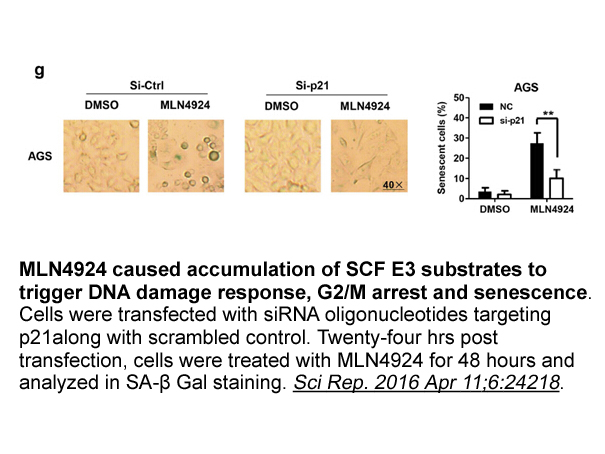Archives
There are several basic science
There are several basic science studies that aim to investigate potential mechanisms behind the reduced incidence of MI in factor Xa inhibitor treated patients. Perzborn et al. reported that in-vitro addition of rivaroxaban reduced tissue-factor induced platelet aggregation (Perzborn, Heitmeier, & Laux, 2015). Additionally, Nehaj et al. showed reduced thrombin receptor activating peptide induced platelet aggregation in a time-series analysis of rivaroxaban and apixaban treated patients (Nehaj et al., 2017). Furthermore, Pignatelli et al. revealed in a cross-sectional study that rivaroxaban and apixaban significantly reduce both thromboxane B2 secretion and of soluble GPVI expression as compared to VKA (Pignatelli et al., 2016). In contrast, Banovcin et al. did not observe reduced ADP, NVP 231 or collagen induced platelet reactivity in rivaroxaban treated patients (Banovcin Jr. et al., 2017). The reason for these discrepant results remains insufficiently understood. In summary, clinical trials emphasize a reduction of MI in factor Xa treated patients. Further studies are needed to confirm this trend and investigate potential mechanisms.
Conclusion
Authors' contributions
Conflict of interest disclosures
Introduction
Oral anticoagulants are commonly used for the management of patients with atrial fibrillation, cardiac valve replacement, and venous thromboembolism (VTE). The primary complication associated with anticoagulants is bleeding. As a result of this potentially devastating adverse effect, reversal agents were developed. Idarucizumab is indicated for the reversal of the direct thrombin inhibitor dabigatran for emergent surgery and life-threatening or uncontrolled bleeding [1]. Warfarin can be reversed with vitamin K and four-factor prothrombin complex concentrate (4F-PCC) in the setting of acute major bleeding or an emergent surgery [2]. 4F-PCC reple nishes the vitamin K-dependent proteins, factors II, VII, IX, X and proteins C and S.
Recently, the first reversal agent for the factor Xa inhibitors rivaroxaban and apixaban, andexanet alfa, was approved by the U.S. Food and Drug Administration (FDA) [3]. Prior to the approval of andexanet alfa, 4F-PCC has been used off-label for the reversal of factor Xa inhibitors in patients with life-threatening hemorrhage. 4F-PCC continues to be utilized for the reversal of factor Xa inhibitors due to the lack of product availability, high cost, and thromboembolic complications associated with andexanet alfa, in addition to guideline support for 4F-PCC [4,5].
The off-label use of 4F-PCC for the reversal of factor Xa inhibitors is based on animal and pharmacodynamics studies in healthy volunteers [[6], [7], [8], [9], [10], [11], [12], [13], [14]]. Additionally, three small retrospective studies assessed the outcomes associated with 4F-PCC for the reversal of direct oral anticoagulants (DOACs), which include factor Xa inhibitors and dabigatran [[15], [16], [17]]. Although the literature supporting the use of 4F-PCC for the reversal of factor Xa inhibitors is sparse, Lethal locus is often utilized in the setting of severe intracranial hemorrhage (ICH) when the expected benefit of treatment outweighs the risk of thromboembolic events. The American College of Cardiology (ACC) recently published an expert consensus decision pathway on the management of bleeding in patients on oral anticoagulants. In patients taking a factor Xa inhibitor with a critical site or life threatening bleed, ACC recommends administering 4F-PCC 50 units/kg [5].
nishes the vitamin K-dependent proteins, factors II, VII, IX, X and proteins C and S.
Recently, the first reversal agent for the factor Xa inhibitors rivaroxaban and apixaban, andexanet alfa, was approved by the U.S. Food and Drug Administration (FDA) [3]. Prior to the approval of andexanet alfa, 4F-PCC has been used off-label for the reversal of factor Xa inhibitors in patients with life-threatening hemorrhage. 4F-PCC continues to be utilized for the reversal of factor Xa inhibitors due to the lack of product availability, high cost, and thromboembolic complications associated with andexanet alfa, in addition to guideline support for 4F-PCC [4,5].
The off-label use of 4F-PCC for the reversal of factor Xa inhibitors is based on animal and pharmacodynamics studies in healthy volunteers [[6], [7], [8], [9], [10], [11], [12], [13], [14]]. Additionally, three small retrospective studies assessed the outcomes associated with 4F-PCC for the reversal of direct oral anticoagulants (DOACs), which include factor Xa inhibitors and dabigatran [[15], [16], [17]]. Although the literature supporting the use of 4F-PCC for the reversal of factor Xa inhibitors is sparse, Lethal locus is often utilized in the setting of severe intracranial hemorrhage (ICH) when the expected benefit of treatment outweighs the risk of thromboembolic events. The American College of Cardiology (ACC) recently published an expert consensus decision pathway on the management of bleeding in patients on oral anticoagulants. In patients taking a factor Xa inhibitor with a critical site or life threatening bleed, ACC recommends administering 4F-PCC 50 units/kg [5].
Methods
Results
Discussion
There are limited reversal agents available for factor Xa inhibitors, which poses a clinical challenge when treating patients that require emergent anticoagulant reversal. ACC published a consensus statement recommending 4F-PCC for patients with critical site or life-threatening bleed; however, the literature supporting the consensus is sparse and there are no published studies comparing outcomes between patients that receive 4F-PCC versus no reversal [5]. As such, the safety and effectiveness of 4F-PCC in patients with traumatic ICH is unknown. In this study, safety and effectiveness were compared between traumatic ICH patients that did and did not receive 4F-PCC for the emergent reversal of factor Xa inhibitors.